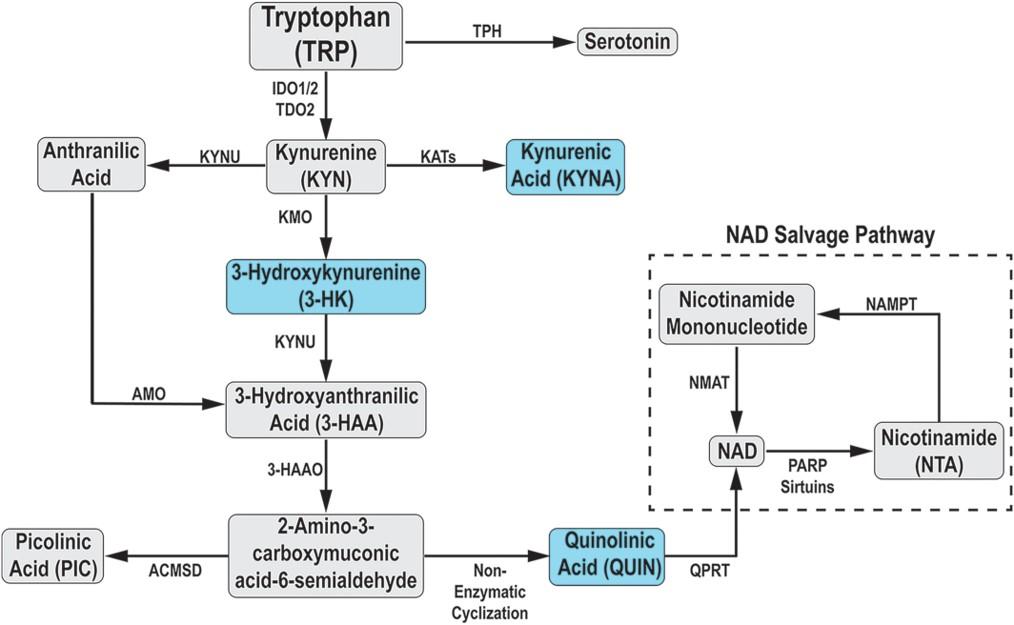
Background
The objective of this study was to determine whether neurotoxic kynurenine metabolites, induced by inflammation, in plasma and cerebrospinal fluid (CSF) are associated with symptom severity and nigral pathology in Parkinson's disease (PD).
Methods
Clinical and MRI data were obtained from 97 PD and 89 controls. We used ultra‐performance liquid chromatography to quantify kynurenine metabolites and high‐sensitivity multiplex assays to quantify inflammation in plasma and CSF. We evaluated group‐wise differences as well as associations between the biomarkers, motor and nonmotor symptoms, and nigral R2* (MRI metric reflecting iron content).
Results
PD subjects had >100% higher 3‐hydroxykynurenine and 14% lower 3‐hydroxyanthranilic acid in plasma. The 3‐HK in plasma was closely associated with both symptom severity and disease duration. PD subjects also had 23% lower kynurenic acid in the CSF. Higher CSF levels of the excitotoxin quinolinic acid were associated with more severe symptoms, whereas lower levels of the neuroprotective kynurenic acid were linked to olfactory deficits. An elevated quinolinic acid/picolinic acid ratio in the CSF correlated with higher R2* values in the substantia nigra in the entire cohort. Plasma C‐reactive protein and serum amyloid alpha were associated with signs of increased kynurenine pathway activity in the CSF of PD patients, but not in controls.
Conclusions
In PD, the kynurenine pathway metabolite levels are altered in both the periphery and the central nervous system, and these changes are associated with symptom severity. Replication studies are warranted in other cohorts, and these can also explore if kynurenine metabolites might be PD biomarkers and/or are involved in PD pathogenesis. © 2020 The Authors. Movement Disorders published by Wiley Periodicals LLC. on behalf of International Parkinson and Movement Disorder Society.
Source: https://movementdisorders.onlinelibrary.wiley.com/doi/full/10.1002/mds.28202